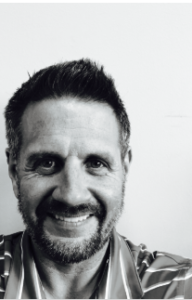Blog entry written on: Ten years later: a review of the US 2009 institute of medicine report on conflicts of interest and solutions for further reform, (bmjebm-2020-111503)
Authors: Trevor Torgerson, Cole Wayant, Lisa Cosgrove, Elie A Akl, Jake Checketts, Rafael Dal Re, Jennifer Gill, Samir C Grover, Nasim Khan, Rishad Khan, Ana Marušić, Matthew S McCoy, Aaron Mitchell, Vinay Prasad, Matt Vassar
In 2009, the Institute of Medicine (IOM) published Conflicts of Interest in Medical Research, Practice, and Education, a wide ranging review of the current state of conflicts of interest (COI) in medicine. Since its publication, the landscape of COI research has changed significantly. Given these changes, we — an international team of experts in the field of COI research — conducted a review of new research on COIs since the IOM report in 2009. Our review, “10 Years Later: A Review of the US 2009 Institute of Medicine Report on Conflicts of Interest and Solutions for Further Reform” (bmjebm-2020-111503), provides updates on both the current state of COI in various areas of medicine as well as recommendations moving forward.
Improvements Made Since the 2009 Institute of Medicine Report
Legislation has provided vast improvements in COI since the 2009 IOM report. For example, the Physician Payments Sunshine Act was enacted in the United States which resulted in the creation of the Centers for Medicare and Medicaid Services’ online Open Payments database. Similarly, COI database and transparency laws, including industry-self regulation, have emerged in other countries. Standardization across databases and movement away from industry-self regulated policies to independently regulated policies will be necessary to build on these improvements. Additionally, industry relationships with medical students decreased from 2003 to 2012 with more medical students reporting awareness of how industry interactions may influence them. Finally, the American Journal of Sports Medicine, in view of substantial evidence regarding potential harms of COI, has adopted a journal policy which cross-references all COI disclosures of US-based authors with the open payments database to ensure accuracy of disclosure.
Changes Still Needed
While improved legislation has allowed for increased transparency into physician-industry relationships, the relationships themselves and their effects on medical practise and research remain largely unchanged. Conflicted clinical trial authors are still more likely to report positive outcomes than their unconflicted counterparts. Numerous research studies have also shown significant industry influence on physician prescribing practises. Studies involving alpha blockers, overactive bladder medications, cholesterol-lowering drugs, diabetes medications, TNF-alpha blockers, proton pump inhibitors, non-steroidal anti-inflammatory drugs, and targeted drugs used to treat lung cancer, kidney cancer, and chronic myeloid leukemia have all shown that physicians are more likely to prescribe drugs from companies they receive money from. Clinical Practice Guideline panels which produce recommendations that govern everyday clinical decision making have also been shown to be heavily conflicted. Lastly, while clear recommendations from ICMJE exist, few journals have actually adopted ICMJE policies as a method to reduce COI influence.
Emerging Topics, Future Research and Further Reform
Recently, topics such as advisory boards and issues related to the repercussions of the “revolving door” between United States Food and Drug Administration and industry have emerged as areas of interest in COI research. As our society continues to transition to online platforms, like social media, new ways that COI may affect public perception requires investigation. In addition to these emerging topics, further research is needed in the areas of COI in peer review, the effect of elimination of detailing, and COI in medical journals and editors. Now, over a decade removed from the landmark IOM report, we outline practical changes that should be made next to ensure progress in continuing to make medicine more unbiased and independent of for-profit companies:
- Policies and laws are needed to ensure all healthcare providers are required to publicly disclose industry relationships in a single database in each country.
- Journal policies to ensure accurate COI disclosure (American Journal of Sports Medicine).
- Eliminate industry funding from continuing medical education.
- Elimination of pharmaceutical detailing, with replacement by medical professional societies.
- Conflict-free clinical practise guideline panels.
Authors:
Trevor Torgerson BS1
Cole Wayant BS1
Matt Vassar PhD1
Affiliations:
1. Office of Medical Student Research, Oklahoma State University Center for Health Sciences, Tulsa, Oklahoma.
Corresponding Author: Mr. Trevor Torgerson, Oklahoma State University Center for Health Sciences, 1111 W 17th St., Tulsa, OK 74107, United States. Email: trevor.torgerson@okstate.edu Phone: (918)
582-1972
Role of Funding Source: NA.
Conflict of Interest: Dr. Vassar reports receipt of funding from the National Institute on Drug Abuse, the National Institute on Alcohol Abuse and Alcoholism, the US Office of Research Integrity, Oklahoma Center for Advancement of Science and Technology, and internal grants from Oklahoma State University Center for Health Sciences — all outside of the present work.
DISCLAIMER
The views and opinions expressed on this site are solely those of the original authors. They do not necessarily represent the views of the BMJ and should not be used to replace medical advice. All information on this blog is for general information, is not peer-reviewed, requires checking with original sources and should not be used to make any decisions about healthcare. No responsibility for its accuracy and correctness is assumed by us, and we disclaim all liability and responsibility arising from any reliance placed on such commentary or content by any user or visitor to the Website, or by anyone who may be informed of any of its content. Any reliance you place on the material posted on this site is therefore strictly at your own risk.



